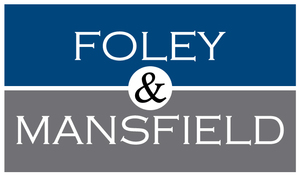SUMMARY
On remand by the Washington Supreme Court, trial court denied plaintiff’s motion to establish personal jurisdiction over out-of-state supplier of asbestos used as component of asbestos-cement pipe.
FACTS
Plaintiff developed mesothelioma after exposure to a variety of asbestos-containing products throughout a lifetime of work, including a cement pipe manufactured by a California company named Certain-Teed, using asbestos supplied by a Wisconsin company named Special Electric. During the key period, Certain-Teed sold and shipped a substantial amount of its pipe into Washington.
Plaintiff alleged that Washington courts could exercise specific personal jurisdiction over Special Electric purely because it had sent a harmful product into the stream of commerce where it was incorporated by Certain-Teed into a finished product that made its way into Washington where it allegedly injured plaintiff.
The Washington Supreme Court reaffirmed the position it adopted in State v. LG Electronics, Inc., 186 Wn.2d 169, 375 P.3d 1035 (2016) that, based on Justice Breyer’s concurrence in J. McIntyre Mach., Ltd. v. Nicastro, 564 U.S. 873, 131 S. Ct. 2780, 180 L. Ed. 2d 765 (2011), a prima facie case for specific personal jurisdiction over a component manufacturer is satisfied where the complaint alleges that the defendant sold its product into the stream of commerce with the intent that the product would come into Washington.
The majority concluded that the intent allegation was missing in Noll. This was important, according to the majority, because recent U.S. Supreme Court precedent involving specific jurisdiction has “reaffirmed that the relevant relationship between a defendant and a forum must arise out of the contacts that the defendant itself creates with the forum state.” Noll at 414-15, (citing Walden v. Fiore, 134 S. Ct. 1115, 188 L. Ed. 2d 12 (2014)) (underscoring added).
The Washington Supreme Court decided that the plaintiff failed to allege sufficient facts for Washington courts to exercise specific personal jurisdiction over Special Electric under the stream of commerce doctrine, and remanded the case to the trial court for further consideration in light of LG Electronics.
HOLDING
On remand, the trial court held that evidence presented by plaintiff was insufficient to establish that Special Electric purposefully availed itself of the benefit and protections of the Washington marketplace.
SIGNIFICANCE
Merely alleging that an out-of-state component supplier sold a part to another out-of-state manufacturer which then sold the finished product in Washington will not satisfy the requirements of due process, even if there is evidence of a close working relationship between the supplier and manufacturer.
For additional information, please contact:
James D. Hicks at 206-456-5068 or jhicks@foleymansfield.com
